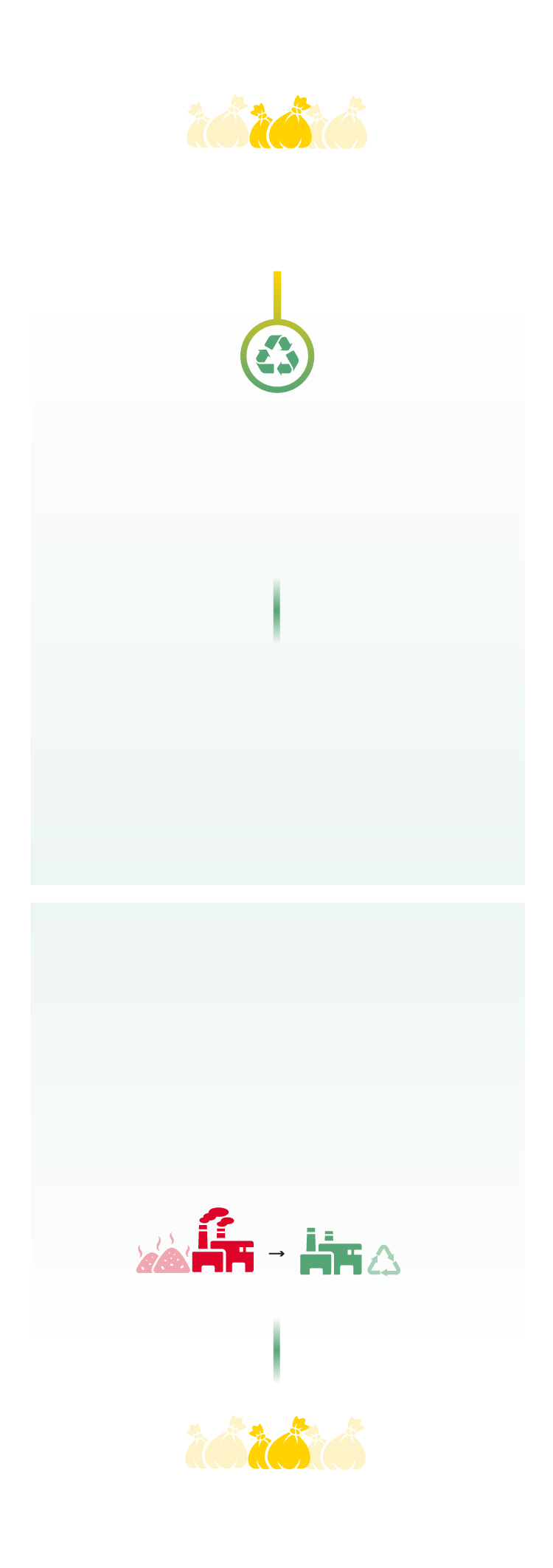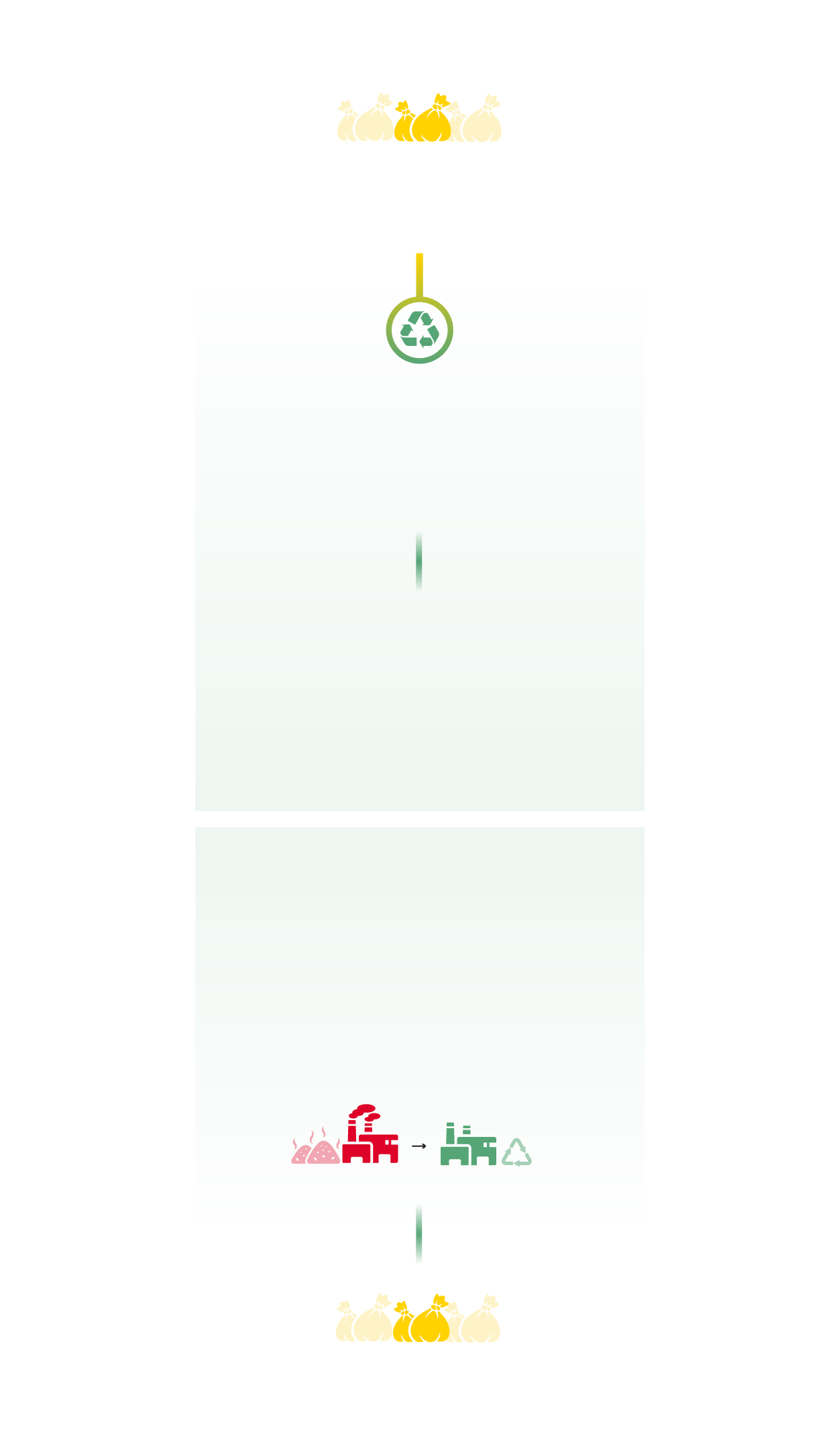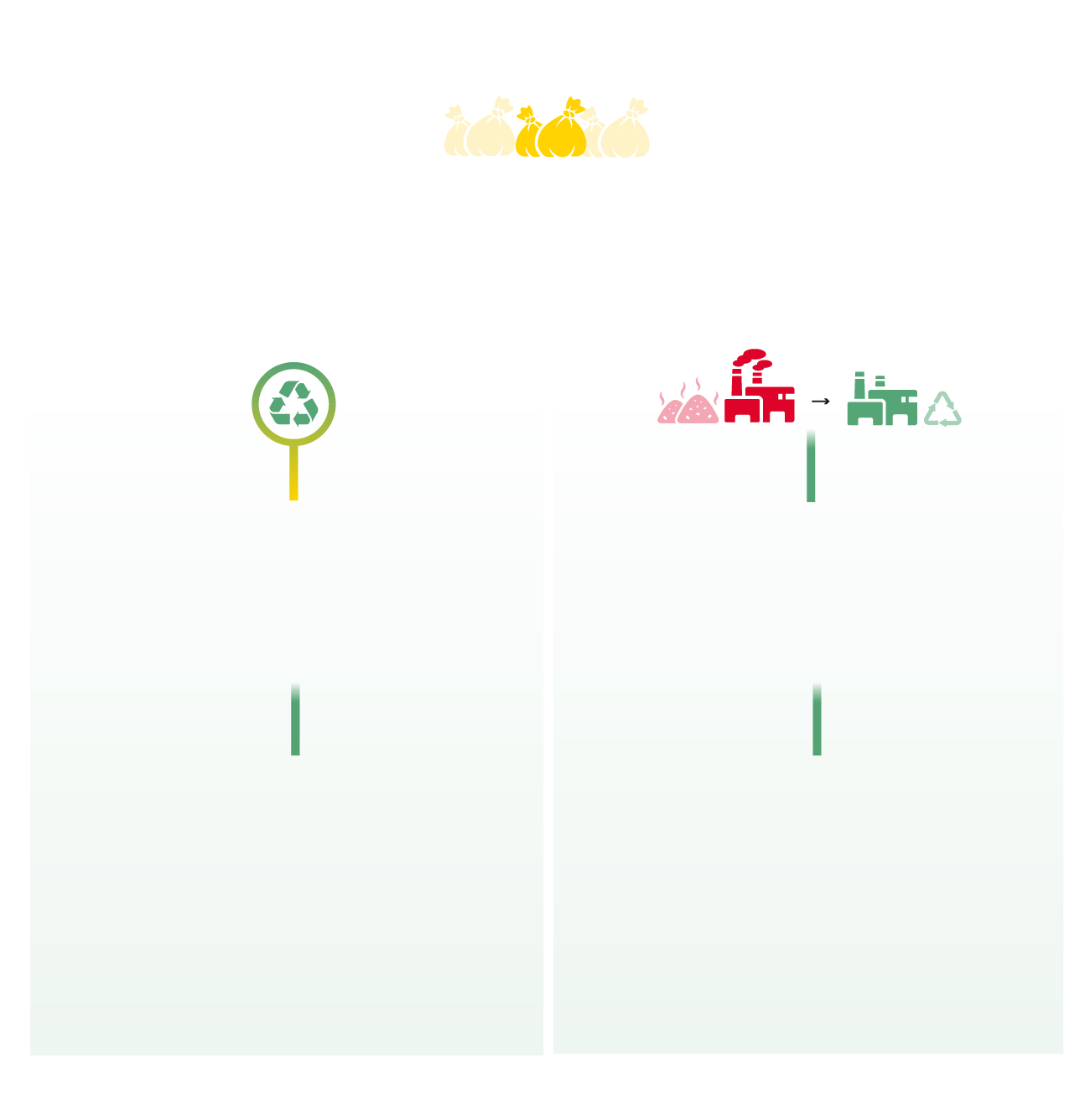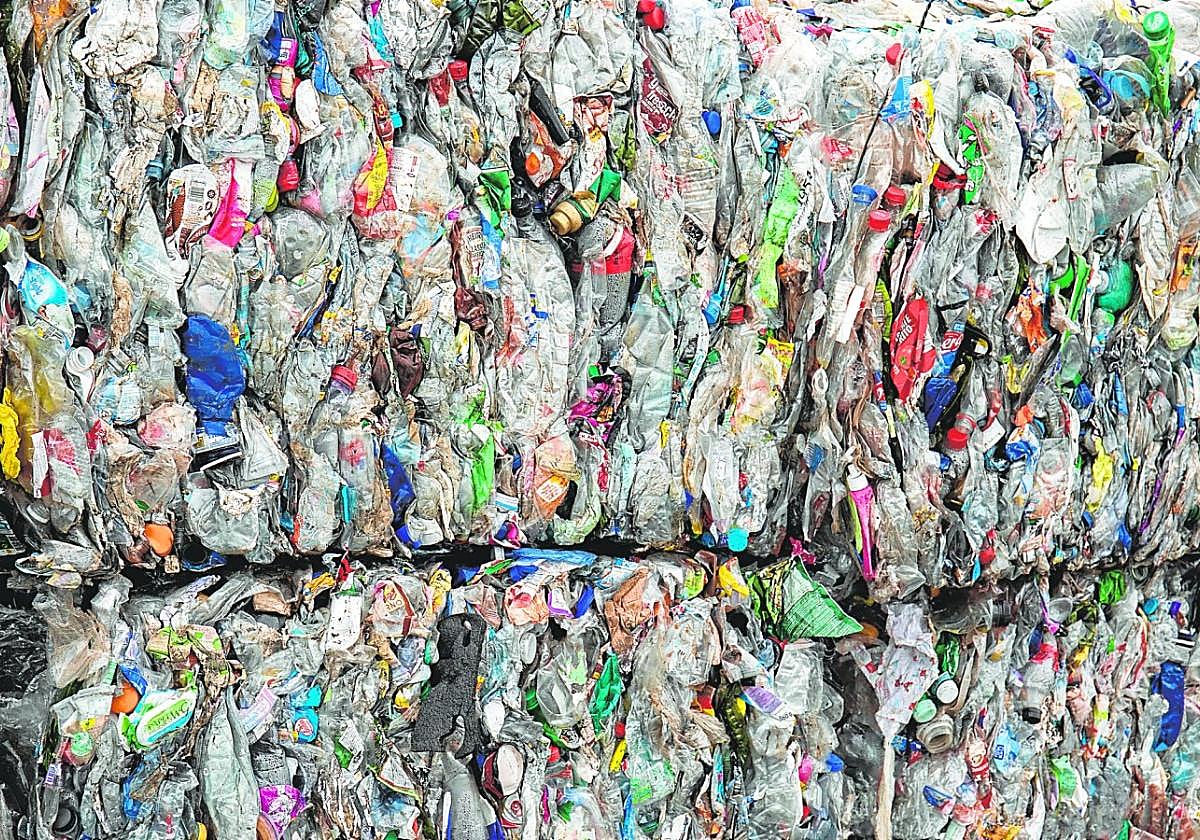From building sites to restaurants: Andalucía's new battlegrounds against climate change
The region's new Circular Economy Law, which aims to embed a new model of production and the way we use goods, came into force on Monday
Héctor Barbotta
Seville
Viernes, 5 de mayo 2023, 16:06
Already common practice, but as of this week it is law. Diners now have the right to take home any uneaten food in biodegradable containers provided free of charge by any restaurant. This is one of the measures included in the Circular Economy Law, approved on 22 March in Andalucía's Parliament and in force as of 1 May.
The ruling, approved with votes in favour from PP and PSOE, (against: Vox; abstentions: Por Andalucía and Adelante Andalucía), aims to change the public mindset of what our economy should be: instead of make-use-bin, we should embrace a circular economy attitude of make-use-salvage-recycle-reuse.
The regional minister for Sustainability, Ramón Fernández-Pacheco, pointed out that this is the first such law to come into force in Spain, demonstrating an awareness of how exposed Andalucía is to the consequences of climate change. He also stressed the importance of reaping the benefits of better recycling of grey water and reducing water consumption in the first place.

Qué es la economía circular
Reducir los residuos al mínimo
La ley andaluza se plantea disminuirlos al 10%
1
Los materiales se mantienen dentro de la economía siempre que sea posible gracias al reciclaje y la reutilización.
Implica compartir, alquilar, reutilizar, reparar, renovar y reciclar materiales y productos existentes todas las veces que sea posible para crear un valor añadido. De esta forma, el ciclo de vida de los productos se extiende.
+
2
Crear productos más eficientes y sostenibles, así como reducir el consumo de energía y recursos.
Adiós al concepto “usar y tirar”
Reducir los residuos al mínimo
A.Martín Campos | SUR
Fuente: Parlamento europeo

Qué es la economía circular
Reducir los residuos al mínimo
(La ley andaluza se plantea disminuirlos al 10%)
1
Los materiales se mantienen dentro de la economía siempre que sea posible gracias al reciclaje y la reutilización.
Implica compartir, alquilar, reutilizar, reparar, renovar y reciclar materiales y productos existentes todas las veces que sea posible para crear un valor añadido. De esta forma, el ciclo de vida de los productos se extiende.
+
2
Crear productos más eficientes y sostenibles, así como reducir el consumo de energía y recursos.
Adiós al concepto “usar y tirar”
Reducir los residuos al mínimo
Fuente: Parlamento europeo
Alba Martín Campos | SUR

What is the circular economy?
Reduce waste to the minimum
(This new law in Andalucía is aiming for 10%)
2
1
All materials stay in use as long as possible thanks to recycling and reuse.
Create more efficient and sustainable products, as well as reduce energy consumption and resources.
Farewell to the concept of “use it, bin it”
This entails sharing, renting out, reusing, repairing, renovating and recycling existing materials and products as many times as possible to create added value. Thus the product lifecycle is greatly extended.
that requires large amounts of cheap, readily available materials and energy.
Source: Parlamento europeo
Alba Martín Campos | SUR
The objective of this ruling, applicable to all manufacturing sectors, is for waste to become products, thus reducing its polluting impact on the environment and curbing climate change. This is no pie-in-the-sky goal - it aspires to reduce waste going to landfill to 10 per cent of the total produced.
To reach this target, this new law promotes efficient use of resources, extending the useful life of products, minimising waste generation and combating all types of obsolescence, in particular banning planned obsolescence and the destruction of unsold, durable goods.
Likewise, it provides tax discounts: for companies that refurbish or repair products; for any in food distribution or catering that can prove reductions in food waste; for those in the prevention and collection of ocean waste, plus any companies, private homeowners, neighbourhood communities or other users that sign up to composting and other biowaste treatments.
Greener public procurement
Putting its own house in order first, now the statute is active, the regional government's administration is obliged to include the required minimum criteria and objectives in the regulations for each industry sector regarding greener procurement processes. Thus bidders must be able to prove their calculations of greenhouse gas emissions for their production processes.
The law also limits single-use products by all public entities, except for hygiene reasons.
Similarly, it favours reductions in the production of food waste and the purchasing of fresh, or seasonal, products, or those with a short distribution cycle in contracts related to all hospitality services, as well as in food supply contracts, especially in educational, social welfare and healthcare centres. For the tendering process, agreements established with community or charitable organisations for the donation of surpluses gain extra credit.
Priority will be afforded to those production or service processes operated by renewable energy sources, or by the use of textile garments made with recycled materials and via other sustainable manufacturing processes.
Likewise, new homes and public buildings must abide by tougher criteria in economies of use of water, reduced energy consumption, guaranteed heating/cooling comforts and just all-round green efficiency.
In tendering for public works, this law adds weight to those bidders who reduce waste generation during construction or once in operation. Also to those using recycled building materials and waste, or those supporting environmental restoration and the salvaging of rundown spaces, and those who save on the use of natural resources by using materials from sustainable sources or, again, from waste.
Construction
The building trade is one of the sectors most affected by this new law, bringing in structural changes. The details in the ruling outline the principles, criteria and tools for a circular economy in the sector, from the design phase to waste management originating from both public and private works.
Besides the aforementioned requirements for new homes, new developments must lay down water-absorbent paving alongside resources for the recovery and reuse of rainwater and the installation of storm-water detention tanks.
The goal here is to increase the use of recycled and recyclable materials. To this end, measures are included to reduce the production of building waste and to improve its removal. One initiative is that builders pay a guarantee, at municipal level, when obtaining the building permits. The guarantee is refunded once it has been certified that the rubble has been dealt with by an authorised body, thus eliminating the illegal dumping of rubble in roadside ditches and beauty spots.
The law also sets out the penalties for breaking the rules: fines of 30,000-120,000€; temporary shutdowns between three and five years; disqualifications from carrying out the business activity between one and five years, plus emergency sanctions where needed. These are the administrative sanctions that can only be applied if a criminal case is not already open.
Food waste
Another objective of the new law is to reduce food waste, from creation to consumption, in homes and restaurants. Hence the law requires food establishments to provide, free of charge, only at the customer's behest, a biodegradable container with any uneaten food they have bought.
Town halls are also authorised to set out bonuses for businesses that work with food banks or similar organisations.
Added to this are the voluntary agreements that promote composting and specific measures to develop bio-industries (as in biodegradable plastics, wood pulp...).
Water
The new law obliges the Junta de Andalucía to generate a more circular attitude towards water management through a fiscal policy that aims to have all the region's key water sources in good condition and adequately protected.
Plastics
By 31 December, 2025, at the latest, a minimum of 65% by weight of all packaging waste from products brought to market should be recycled. In the case of single-use plastics, the targets are 77% by 2025, 90% by 2030. The Junta and town halls must deploy the necessary measures to guarantee a separate collection service of single-use plastics for recycling.
Electronic goods
In addition to discouraging throwing away products before we need to, the law requires companies and other public and private bodies to create a more circular economy for electrical and electronic goods to combat the digital divide.
These entities can provide funds for electronic goods that still have a useful life to be refurbished and delivered, free of charge, to educational and community groups and families with fewer resources.
Importing waste
The image of ships reaching Andalucía's shores filled with hazardous waste to dump in Nerva (mining area in Huelva with a controversial landfill site) or other regional landfill sites will become history thanks to this law. Previously this was not set in stone, so hazardous waste and contaminated soils were transported in from other regions.
A key principle of the circular economy is self-sufficiency within a defined territory. Thus, in general, the entry of hazardous waste and stable, non-reactive, hazardous waste or treated waste from outside Andalucía is now banned.
